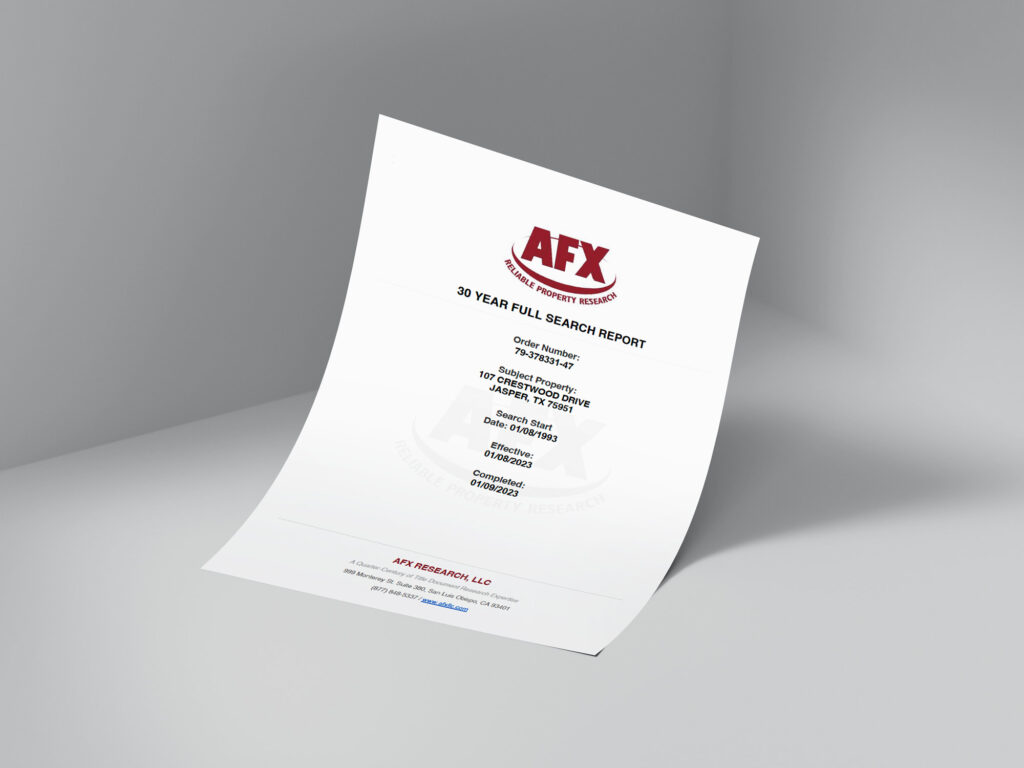
The understanding of liens and property title reports is significant when dealing with real estate/real estate agent. Whether you are a would-be buyer or investor, or homeowner, it can save you time and money if you are better-informed with this overview: lien searches and title reports.
In this blog, we will provide clear information on lien searches. We will explain how to find liens on a property. We will also discuss the difference between a title and a title report. Finally, we will cover the costs of these two services.
A lien simply refers to a legal claim against a property, usually for the security of a debt. It may mean that should there be failure in payment of such a debt, the creditor has the right to take over the property. Liens arise from various sources, from unpaid taxes down to mortgages or home equity lines of credit.
For this reason, it is important to do a property lien lookup or check the previous owner. This way, you will know if there are any existing liens on the property.
1. Mortgage Liens: This is the most common type of lien. By taking out a mortgage, the lender has a lien on your property until you repay the loan.
2. Tax Liens: If you fail to pay your property taxes, the government can place a tax lien on your property. This may lead to foreclosure if taxes are unpaid.
If a court decides against you in a lawsuit and you don't pay, the creditor can put a lien on your property. A lien means they have a legal claim to your property until you settle the debt.
If a contractor or subcontractor performs work and doesn't receive payment, they can file a mechanics lien. This lien is against your property. Understanding these types of liens can help you assess any risks associated with a property.
You can start searching for liens using various online resources offering free property lien searches. Most public records websites, such as local government tax offices or county recorder's offices, publish liens on properties.
County websites have online databases. You can search for property liens using an address or owner name.
Local Government Offices: You can also physically go to the local government offices and ask for lien information.
Otherwise, if you want more hands-on inquiries, you can pay a visit to your county's local office. They keep public records and that includes liens. Here is how to look up liens on property:
Visit the Local Recorder's Office: Most counties have online databases where you can search for property liens.
Property Address Search: Enter in property address or owner's name for any associated liens.
If looking for a more comprehensive search, then you need to acquire the services of a title search company. Those professionals will provide larger databases and a thorough property lien check.
A number of services are available online which specifically search titles and investigate liens. Any one of these can deliver fast results on whether there are outstanding liens, although be aware that some may charge for their services.

A title report is a written record of who has owned the property. It also lists any liens and encumbrances. This report is crucial for the following reasons, among others:
A US title search shows that the seller has the legal right to sell the property. This means you are buying from the rightful owner.
The report lists all liens on the property. This helps you understand any financial responsibilities.
The legal documents may list any limits on the property. This includes easements or covenants. These limits could affect how you use the land.
It is of utmost importance to know the difference between a title and a title report:
Title refers to the legal right to possess and use a property. It shows your interest in the ownership of that property and your right to convey that interest to another person.
Title Report: A title report or title search is a document that shows the history of a property's title. It shows all the owners, any claims against the property, and any legal questions about ownership.
The time a us title search takes can vary. It depends on factors like the property's location, recorded matters, and its history's complexity. Generally speaking, it takes a couple of days or a few hours to conduct a title search. If you want to know how to get a fast title search in NJ, many title companies offer same-day solutions.
The fastest time for a title search in New Jersey depends on a few factors. These include the property's ownership history, local county office processing times, and the title company’s workload.
Our company offers New Jersey provide quick services. They can complete basic title searches in as little as 24 hours. How long does a title search take? For standard searches, it typically takes around 3 to 5 business days.
To get the fastest processing, choose AFX Research. We specialize in quick title services. You should also consider using an online service provider. This can help make the search easier and faster.
1. Property History: The more complicated the history of ownership, the longer it will take to research.
2. Local Record Keeping:How efficient the local recorder's office is can affect how quickly a search is completed.
3. Current Workload: Title companies may have varying volumes of work, depending on the time period.
Value is important to understand the cost of a property title search. This helps you budget for the real estate transaction. The price for this may vary from company to company and on the title complexity.
The average cost of a title search ranges from $100 to $500. Asking for title search charges would save you from any unwanted shocks.
Like a title search itself, the costs of a chain of title report vary. Depending on who provides it, a title report can be as low as $100 to as high as $300. If you request a title report, request an itemization of the costs.

Utilizing a US title searcher would offer several benefits:
Expertise: Title searchers are trained to find problems a typical homeowner might not find.
Comprehensive: They have access to a host of records in order to comprehensively search.
Saves Time: You will save time in outsourcing this task, possibly preventing the oversight of some crucial information.
You can find liens filed against your property by ordering a property title lien search. You can do this through your local county recorder's office, use online databases, or hire a title company.
Yes, most local government websites do provide free property lien searches. In any case, in-depth searches are likely to involve some kind of fee.
If you find liens on a property that you are about to buy, you should sort out the problems before you complete the sale. You may wish to ask the seller to remove the liens, or in extreme situations, you may have to walk away from the deal.
Yes, there are ways to perform a free lien search on a property, though they may take some time. Begin at the county recorder’s or clerk’s office. You can usually search online by property address or owner’s name. You can also visit in person to access public records.
A typical title search takes 3 to 5 business days. However, someone can complete it in about 0.67 days if the title history is simple and records are easy to find.
In conclusion, liens and title reports are mere fundamentals anyone should know when engaged in a real estate transaction. You can be sure you are making a smart choice by using a property title lien search. This will help you find lien information on the property.
You can do a free property lien search or hire a title company. Being proactive in your research can help you avoid headaches and financial losses later.
If you have any questions or need help with a title search or lien check, please contact a qualified title company today. It's well worth the investment in your peace of mind!